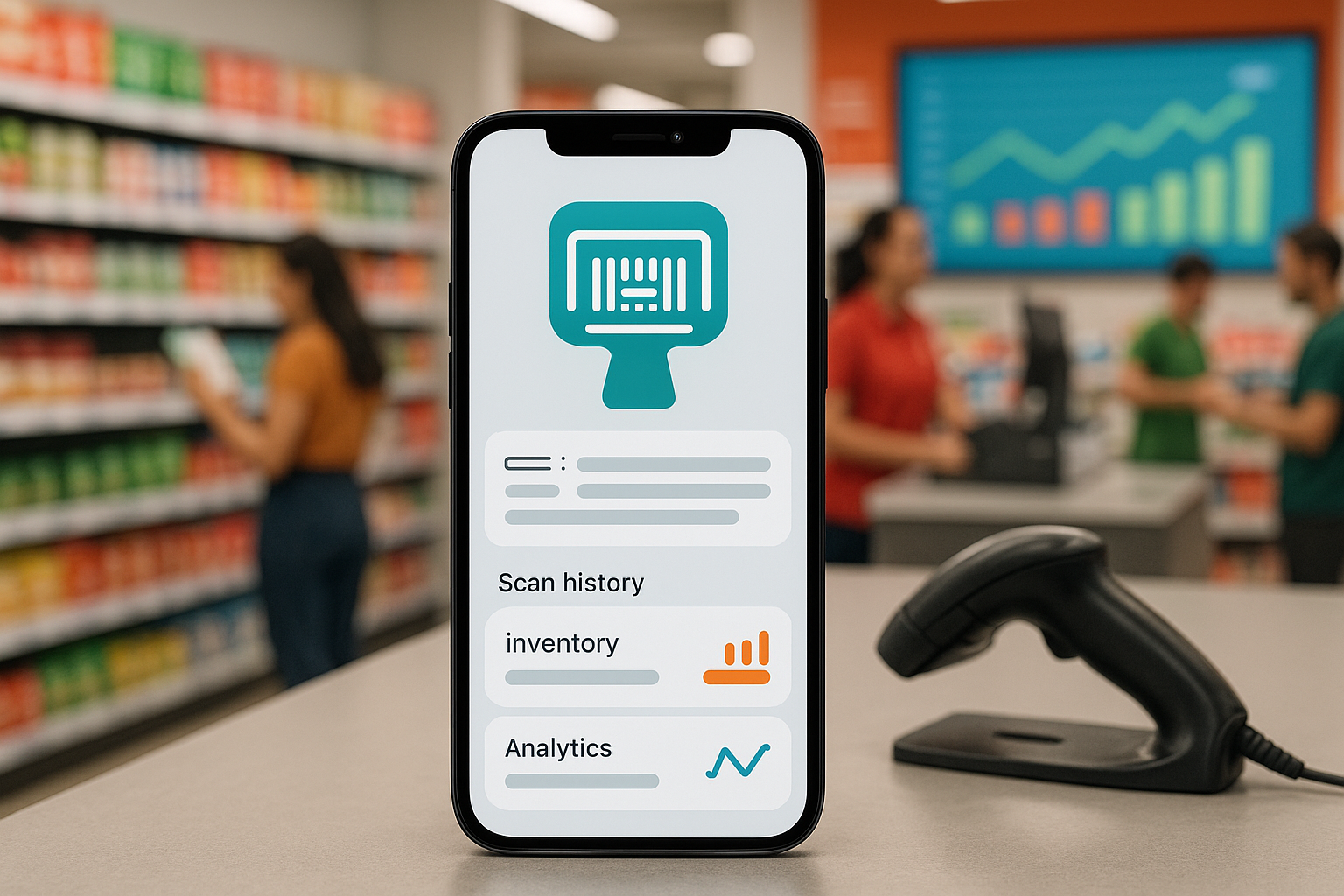Introduction
Developing a banking or finance application is an undertaking of significant complexity. For tech startups and established innovators alike, the path is fraught with challenges that extend far beyond those of traditional app development. The stakes are incredibly high, involving sensitive user data, stringent regulatory compliance, and the constant pressure to stay ahead of nimble competitors. A single misstep in security can lead to devastating financial losses and irreparable damage to user trust, while a failure to scale can render an app useless during periods of high traffic.
This article serves as a comprehensive guide to the world of banking and finance app development. We will explore the fundamental nature of these applications, dissect the formidable challenges of in-house development, and provide a clear-eyed look at the associated costs. Furthermore, we will introduce the leading development companies that can navigate this intricate landscape for you.
At MetaCTO, a premier US-based, AI-powered mobile app development firm, we have over 20 years of experience turning complex financial concepts into successful, market-ready applications. We understand that integrating robust banking and finance functionalities requires a specialized skill set that few teams possess. This guide will illuminate the path forward, showing you how to build, grow, and monetize a secure and powerful financial app that your users will trust and value.
What is a Banking and Finance App?
At its core, a banking and finance app is a mobile application that allows users to manage their finances and perform a wide array of banking tasks from virtually anywhere with an internet connection. These applications have become indispensable tools for modern consumers, offering unparalleled convenience and control over their financial lives.
However, not all mobile banking apps are created equal. The best-in-class applications distinguish themselves through a rich set of features, ironclad security, and an intuitive user experience. Core functionalities that users have come to expect include:
- Account Management: Checking account balances, reviewing transaction histories, and moving funds between accounts.
- Payments and Transfers: Paying bills online, making loan payments, and sending and receiving money, often through networks like Zelle.
- Mobile Check Deposit: Depositing checks simply by taking a picture, with in-app guidance to ensure the images are clear and complete.
- Security and Alerts: Setting up real-time transaction alerts, fraud monitoring, and the ability to instantly lock and unlock debit or credit cards. Advanced security features like biometric authentication (fingerprint or facial recognition), two-factor authentication, and four-digit passcodes are now standard.
- Financial Wellness Tools: Many apps offer free access to credit scores (like FICO scores from Experian), personalized tips for improving credit, and in-app budgeting and spending analysis tools. Some provide a “financial health” score based on spending habits.
- Customer Support: Access to customer support specialists via live in-app chat or through a virtual assistant for quick answers to common questions.
- Convenience Features: Finding nearby ATMs, opening new accounts directly within the app, and setting specific savings goals.
These applications are typically free for a financial institution’s customers and are designed to be as secure, if not more so, than traditional online banking platforms. They serve as the primary digital touchpoint between a bank and its customers, making their performance and reliability critical to customer satisfaction and retention.
Reasons It Is Difficult to Develop a Banking and Finance App In-House
Embarking on in-house fintech app development is a path laden with unique and formidable obstacles. These go far beyond the typical challenges of software creation and demand a level of specialized expertise that is difficult to assemble and expensive to maintain.
Navigating the Regulatory Labyrinth
The financial industry is one of the most heavily regulated sectors in the world, and for good reason. For fintech app developers, navigating this complex regulatory landscape is a primary and persistent challenge. Compliance is not an afterthought; it must be woven into the fabric of the development process from the very beginning.
Key regulations include:
- GDPR (General Data Protection Regulation): The European Union’s stringent data protection law requires rigorous measures to protect user data. Non-compliance can result in catastrophic fines of up to 4% of a company’s global annual revenue.
- PCI DSS (Payment Card Industry Data Security Standard): A set of security standards designed to ensure that all companies that accept, process, store, or transmit credit card information maintain a secure environment.
- AML (Anti-Money Laundering) & KYC (Know Your Customer): These regulations are designed to prevent financial crimes. They require financial institutions to verify the identity of their clients and monitor transactions for suspicious activity.
Even a seemingly small web or mobile fintech app that neglects compliance can face serious issues down the line, including hefty fines and a complete erosion of user trust. The challenge is compounded by regional differences in regulations, which necessitates a team of experts who are constantly staying updated on the latest changes.
Paramount Importance of Data Security
In fintech, data is the crown jewel. Given the extreme sensitivity of financial information, security is not just a feature—it is the foundation upon which the entire application rests. High-profile data breaches can inflict severe financial losses and cause lasting reputational damage. In 2023, a staggering 27% of all global data breaches occurred in financial institutions, highlighting the immense risk.
A single breach not only has immediate financial consequences but also a devastating long-term effect on client trust, leading to sustained revenue loss. To combat this, developers must:
- Implement Robust Encryption: Protect data both at rest on servers and in transit between the app and the backend.
- Conduct Regular Penetration Testing: Proactively identify and address vulnerabilities before malicious actors can exploit them.
- Secure Against Malware: Design the app to detect and mitigate malware on a user’s device, ensuring transactions remain secure even in a compromised environment.
The Challenge of Scalability and Performance
Fintech applications must be built for growth. A payment app that works flawlessly with a few thousand users can quickly buckle under the pressure of millions of daily transactions. This is the challenge of scalability.
Failing to scale effectively can have dire consequences:
- Delayed Transactions: In finance, delays can mean lost money and lost opportunities for users.
- Lag and Unprofessionalism: An app that lags or crashes during high-traffic times appears unprofessional and unreliable, eroding user confidence.
True scalability isn’t something that can be bolted on later. It depends on critical decisions made early in the mobile app development process, such as the choice of a suitable programming language and framework, adherence to coding best practices, and an architecture designed with future growth in mind.
Integration with Legacy Banking Systems
One of the most significant technical hurdles is integrating modern fintech applications with the legacy systems that power many traditional banking institutions. These older systems are often outdated, inflexible, and were not built with an API-first architecture, making seamless integration a nightmare.
Even when integration is successful, it can introduce new security vulnerabilities, as many legacy systems lack modern security protocols. This becomes particularly problematic for startups and neobanks that must partner with traditional firms to leverage their banking licenses, relying on them for critical data and processing.
The Unforgiving Nature of User Experience (UX)
In the competitive fintech sector, user experience can single-handedly determine an app’s success or failure. Users expect interfaces that are intuitive, engaging, and simplify complex financial transactions. Early-stage companies, in particular, must prioritize creating a smooth and seamless navigation experience.
Poor UX can manifest in many ways, all of which are highly undesirable in a financial context:
- Slow loading times
- Malfunctioning animations
- Confusing user flows
- Application crashes
A user who has a bad experience with a fintech app is unlikely to give it a second chance, especially when their money is involved.
The Talent Gap and the High Cost of Expertise
Perhaps the most overlooked challenge is the talent gap. Building a fintech app requires more than just skilled coders; it requires developers who are deeply familiar with the fintech industry and its unique demands. These experts need to understand complex concepts like:
- Real-time data flow
- Advanced encryption techniques
- Regulatory compliance frameworks
- Banking APIs and legacy system integration
Acquiring this talent comes at a steep cost. Attempting to cut corners by hiring a less experienced team often backfires, leading to critical mistakes that cost far more to fix later on. Finding world-class developers who possess this rare combination of skills at a cost-effective price is a monumental challenge for most companies. This is precisely why partnering with a specialized agency like ours can be a game-changer, providing access to a vetted, expert team without the prohibitive cost and risk of in-house hiring. Explore our custom mobile app development services to see how we can help.
Different Types of Banking and Finance Apps
While many apps share core functionalities, they can generally be categorized into two main types, each with a different development approach and cost structure.
1. Dedicated Banking Apps
These are applications developed by a single financial institution (like a traditional bank or a neobank) exclusively for its own customers. The app is a proprietary channel for the bank’s services, offering a tailored and integrated experience.
- Functionality: They provide a comprehensive suite of services directly tied to the user’s accounts at that specific institution, such as checking balances, transfers, loan payments, and accessing bank-specific products.
- Development: Development is typically more complex and expensive, as the institution is building a complete, end-to-end system from scratch or heavily customizing an existing platform.
- Cost: Costs for dedicated apps are generally higher, often ranging from $100,000 to $200,000 or more, due to the depth of features, security requirements, and integration with the bank’s core infrastructure.
2. Aggregator Apps
Aggregator apps, also known as account aggregation services, act as a financial dashboard. They allow users to connect accounts from multiple different financial institutions and view all of their financial information in one place.
- Functionality: The primary feature is consolidation. Users can see a holistic view of their finances, track spending across all accounts, and monitor their net worth. They rely on secure APIs to pull data from various banks.
- Development: Development is generally less expensive than for a dedicated app because the core banking infrastructure already exists. The main challenge lies in securely integrating with the APIs of numerous different banks.
- Cost: Costs for aggregator apps are typically lower, often in the range of $50,000 to $100,000, as they are building on top of existing services rather than creating them from the ground up.
Cost Estimate for Developing a Banking and Finance App
Determining the exact cost of a banking app without a detailed project scope is challenging, as the design and functionality are critical factors. However, we can break down the costs based on common features and influencing factors. Overall, a custom banking application can range from $250,000 to over $1 million, depending on the complexity, features, and the development team’s location and experience.
Cost by Feature
Here is a breakdown of estimated development hours and costs for individual features. These are subjective estimates and can vary dramatically based on developer rates and technology choices.
| Feature | Estimated Development Time | Estimated Cost (at $25-75/hr) |
|---|---|---|
| Authorization (Sign Up/Log In) | 200 hours | $5,000 - $7,500 |
| Notifications | 80 hours | $2,000 - $3,000 |
| Access to Card Details | 150 hours | $4,000 - $6,000 |
| Transactions and Payments | 300 - 350 hours | $8,000 - $10,000 |
| Transaction History | 80 - 100 hours | $2,500 - $3,000 |
| Spending Analytics | 120 hours | $4,500 - $5,500 |
| In-App Chat with Customer Support | 130 - 150 hours | $3,750 - $5,250 |
| Splitting Bills | 160 - 220 hours | $8,000 - $11,000 |
| QR Code Scanning | 140 - 200 hours | $7,000 - $10,000 |
Major Cost Factors
Several key factors will significantly influence the final development cost:
- App Complexity: The more features you add, the higher the cost. Basic features form the foundation, but advanced functionalities like biometric authentication, AI-powered spending analytics, and customer support chatbots increase development time and expense.
- Developer Rates: The geographic location of your development team plays a huge role. Agencies in North America typically charge higher rates ($150-200/hr), while teams in Eastern Europe may offer lower rates ($50-100/hr).
- UX/UI Design: A user-friendly and visually appealing design is not free. It requires skilled designers for user research, wireframing, prototyping, and usability testing, all of which add to the overall cost.
- Security & Compliance: Implementing robust security measures and ensuring compliance with regulations like GDPR and PCI DSS is a complex and ongoing expense. It requires continuous monitoring and regular updates.
- Technology Stack: The choice between native development (separate apps for iOS and Android) and cross-platform development (using frameworks like React Native or Flutter) impacts the cost. Native development is more expensive but can offer higher performance, while cross-platform can reduce costs by using a single codebase. A poor choice of tech stack can lead to inferior performance and higher long-term maintenance costs.
- Licensing: Obtaining the necessary financial license is a critical and costly step.
- Payment Institution License (EU): €5,000 – €50,000
- E-Money Institution License (EU): €20,000 – €150,000
- Banking License (some countries): $1–3 million, plus significant capital reserve requirements.
- An alternative is to operate under a licensed bank’s authority (Banking-as-a-Service), which involves service fees or revenue-sharing agreements but minimizes upfront costs.
- Ongoing Maintenance: Development is not a one-time expense. Ongoing maintenance, including bug fixes, performance tuning, server maintenance, and compatibility updates for new OS versions, is essential and contributes to the total cost of ownership.
Top Banking and Finance App Development Companies
Choosing the right development partner is the most critical decision you will make. An experienced company can help you navigate the challenges, control costs, and build a superior product. Here are some of the most recognized fintech app development companies in 2025.
1. MetaCTO
At MetaCTO, we are a US-based, AI-powered mobile app development agency with a proven track record of building, growing, and monetizing successful applications. With over 20 years of experience and more than 120 successful projects under our belt, we specialize in transforming ambitious ideas into market-leading products. We understand that integrating banking and finance functionality isn’t just about adding features; it’s about building a foundation of trust, security, and reliability.
Our process is designed to de-risk your project and accelerate your time to market. We can launch a powerful Minimum Viable Product (MVP) in as little as 90 days, allowing you to test your concept, gather real user feedback, and attract investors without a massive upfront investment.
We excel at overcoming the core challenges of fintech development. The difficulty of integrating complex financial features, ensuring regulatory compliance, and building a scalable, secure architecture is why many in-house projects fail. Our team of expert strategists and developers possesses the deep technical knowledge and industry-specific experience required to navigate this landscape. By partnering with us, you gain immediate access to a team that knows how to:
- Architect for Security and Compliance: We build security and compliance into your app from day one, leveraging our expertise in encryption, data protection, and regulatory requirements.
- Ensure Scalability: We use modern, scalable architecture to ensure your app can handle growth from a thousand users to millions without compromising performance.
- Integrate Complex Systems: Whether integrating with modern APIs or navigating the complexities of legacy banking systems, our team has the experience to ensure seamless connectivity.
- Leverage AI for Innovation: We use AI to deliver advanced features like personalized financial insights, fraud detection, and intelligent chatbots, giving you a competitive edge.
Our services cover every step of the journey, from initial strategy and design to launch, growth, and monetization. Whether you need to build a new app from scratch, rescue a failing project, or get expert guidance from a Fractional CTO, we are your dedicated technical partner.
2. SDK.finance
- Founded: 2013
- Location: Lithuania
- Team Size: 50+
- Services: SDK.finance is a European company specializing in FinTech software. With over 15 years of experience, they offer both custom development services and a pre-developed FinTech Platform with over 470 APIs to accelerate product launches. They work with banks and startups to build everything from payment apps to complex financial systems and have experience ensuring compliance with regulations in the US, Europe, and the MENA region.
3. ScienceSoft
- Founded: 1989
- Location: USA
- Team Size: 750+
- Services: A US-based company with a long history, ScienceSoft delivers custom solutions for banking, insurance, investment, and payments. They specialize in large-scale BFSI systems and innovative apps incorporating AI and DeFi tools. Clients praise their high-value consulting and ability to meet project goals on time and within budget.
4. Innowise
- Founded: 2007
- Location: Poland
- Team Size: 2000+
- Services: Innowise is a large European software development company with nearly two decades of experience in the banking and financial sectors. They focus on creating customized, secure, and scalable software for banks, fintech startups, and large financial institutions, helping them modernize operations.
5. Nimble AppGenie
- Founded: 2017
- Location: Global
- Team Size: Not specified
- Services: With a 97% client satisfaction rate across over 350 projects, Nimble AppGenie specializes in developing cutting-edge solutions for eWallets, loan lending, and BNPL (Buy Now, Pay Later) platforms. They offer expertise in both Android and iOS development to help startups and enterprises achieve their digital goals.
6. KindGeek
- Founded: 2015
- Location: Ukraine
- Team Size: 50+
- Services: KindGeek is a full-service development company with a product-centric approach. They offer a one-stop shop for customized fintech software, covering the entire process from idea to deployment. They are known for integrating innovative technologies like blockchain, AI, and Web 3.0.
7. Cleveroad
- Founded: 2011
- Location: Estonia
- Team Size: 100+
- Services: Cleveroad is a software development company with expertise in providing customized web and mobile solutions for industries including FinTech. Their core competencies include native and cross-platform development, as well as AI/data science and machine learning.
8. Itexus
- Founded: 2013
- Location: USA
- Team Size: 100+
- Services: Itexus is a FinTech-focused development company serving clients in 23 countries. They offer a wide range of services, from mobile app development to enterprise-ready, AI-powered digital banking and investment management systems.
9. DataArt
- Founded: 1997
- Location: USA
- Team Size: 3000+
- Services: DataArt is a globally recognized software engineering company with over 20 years of experience. Their expertise lies in digital transformation and legacy system modernization, enabling financial institutions to adapt to changing customer behaviors. Their services include data management, analytics, and cybersecurity.
10. Inoxoft
- Founded: 2014
- Location: USA
- Team Size: 50+
- Services: Inoxoft is a custom app development company with a focus on financial services. With a presence in Philadelphia, Tallinn, and Tel Aviv, their certified teams specialize in a range of technologies, including Flutter, React Native, and Python, and offer big data analytics and machine learning services.
11. Netguru
- Founded: 2008
- Location: Poland
- Team Size: 700+
- Services: With nearly 15 years of experience, Netguru specializes in fintech and supports companies in developing personalized, customer-centric products. Their expertise covers banking platforms, investment tools, and digital wealth solutions.
Conclusion
The journey of developing a banking and finance app is undeniably complex. It demands a mastery of intricate regulations, an unwavering commitment to security, an architecture built for massive scale, and a user experience that inspires confidence. We’ve explored the core features that define these apps, the immense challenges of building them in-house, the significant costs involved, and the development partners who can lead the way.
While the hurdles are significant, they are not insurmountable. The key to success lies in recognizing the unique demands of the fintech space and partnering with a team that has the specialized expertise to meet them. Attempting to navigate this terrain alone often leads to costly mistakes, project delays, and a product that fails to meet market expectations.
With the right partner, you can transform a complex vision into a secure, scalable, and successful financial application.
Ready to build a financial app that stands out? Talk with a MetaCTO expert today and let us help you integrate powerful banking and finance features into your product.






